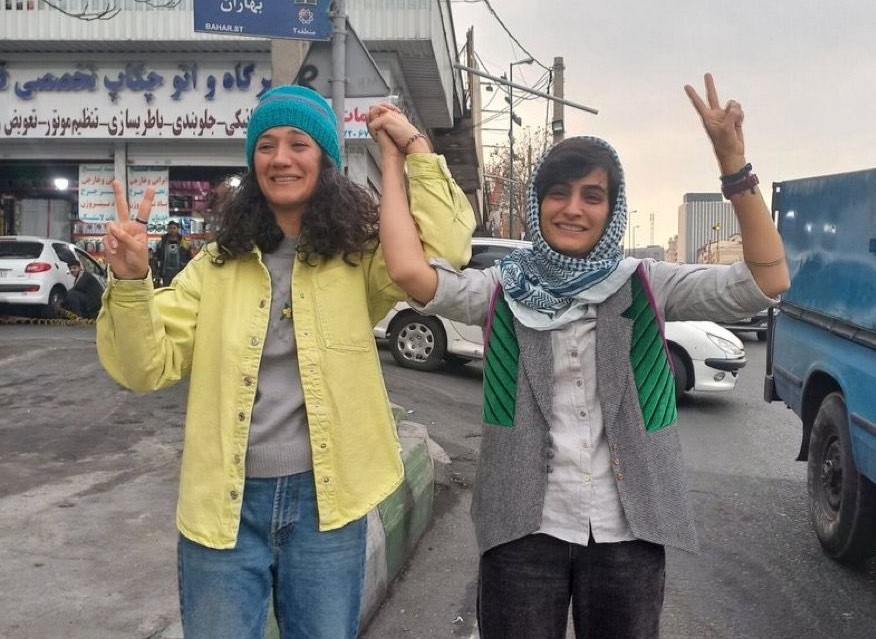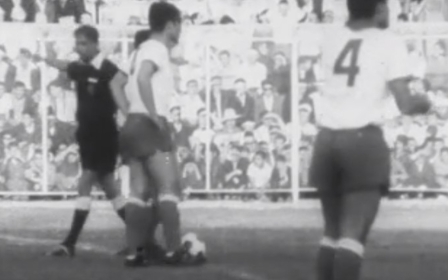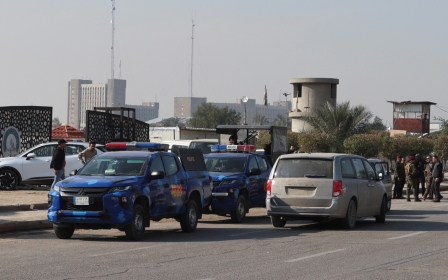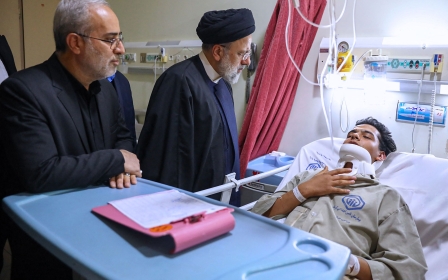Iran: Journalists who broke Mahsa Amini story face hijab charges day after release

New charges over inappropriate wearing of hijab have been filed in Iran against the two journalists who broke the story of Mahsa Amini's death in Iran, just one day after they were released from jail.
Niloofar Hamedi and Elaheh Mohammadi were both arrested in September 2022 after reporting on the death of 22-year old Kurdish woman Amini, who died after being detained for "inappropriate hijab" in Tehran.
The coverage of her death sparked off months of demonstrations across Iran, leading to more than 500 people being killed by security forces, hundreds more arrested and tortured, and at least seven executed.
Footage posted on social media showed friends and family of the two journalists greeting them after their release from Tehran's Evin prison on Sunday.
Another picture showed them flicking "victory" signs with Hamedi wearing a woolly hat and Mohammadi seemingly wearing a Palestinian keffiyah.
New MEE newsletter: Jerusalem Dispatch
Sign up to get the latest insights and analysis on Israel-Palestine, alongside Turkey Unpacked and other MEE newsletters
The Iranian judiciary's Mizan Online website on Monday said the photos showed "the women without hijab" and said that "a new case was filed against the defendants" as a result.
The website added that the terms of the journalists' release on bail bar them from travelling abroad.
Jasmin Ramsey, deputy director of the Centre for Human Rights in Iran, told MEE that the new charges were evidence of Tehran's "revolving doors" for political prisoners.
"It's no surprise that it is continuing to persecute these women, who were jailed simply for performing basic actions expected of all journalists," she said.
"Instead of respecting women's right to choose whether to wear the hijab, the government of the Islamic Republic is trying to beat women into submission, both metaphorically and physically."
'Collaboration' accusations
Colleagues of Hamedi spoke to Middle East Eye in September 2022, shortly after her arrest.
Hamedi, who works for the reformist daily newspaper Shargh, managed to gain access to Kasra hospital in Tehran where Amini was being treated following her detention by the morality police for allegedly wearing her hijab inappropriately.
Niloofar Hamedi with her husband Mohammad Hossein Ajorlo shortly after her release from prison
"If it weren't for her courage, the tragic incident that happened to Mahsa Amini would not have been reported to the media so quickly," said one colleague at the time.
Mohammadi, a reporter for the daily Ham Mihan, was arrested on 29 September after going to Saghez in Iran's Kurdistan province where Amini's funeral had been organised, and where one of the first demonstrations took place.
In October, Mohammadi and Hamedi were found guilty of collaboration with the United States, conspiring against state security and "propaganda" against the Islamic Republic.
Mohammadi was subsequently given six years in prison while Hamedi was handed a seven-year term over the collaboration offence.
Mizan Online also said the two received five-year sentences each for the conspiracy charges and one year for propaganda.
The two have denied all charges and have appealed their sentences, with the Tasnim news agency saying they would "remain out of jail until the appeals court makes a decision".
Middle East Eye delivers independent and unrivalled coverage and analysis of the Middle East, North Africa and beyond. To learn more about republishing this content and the associated fees, please fill out this form. More about MEE can be found here.




